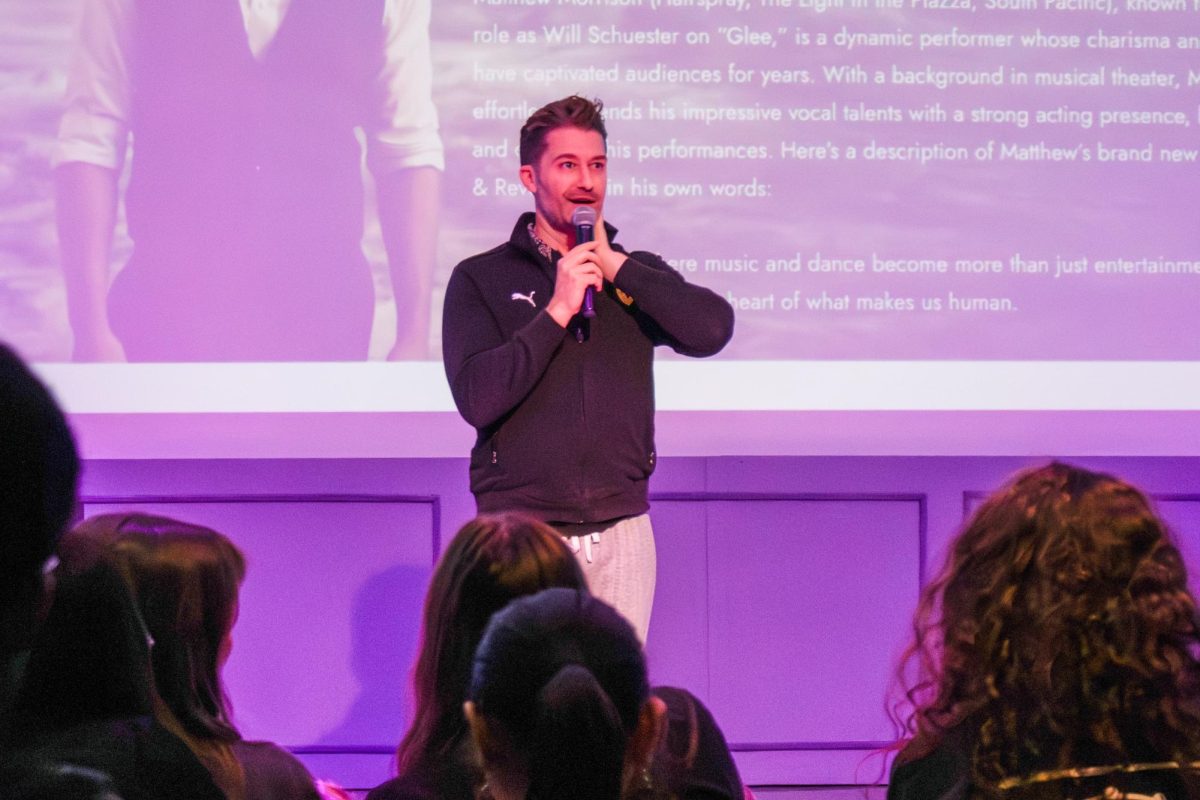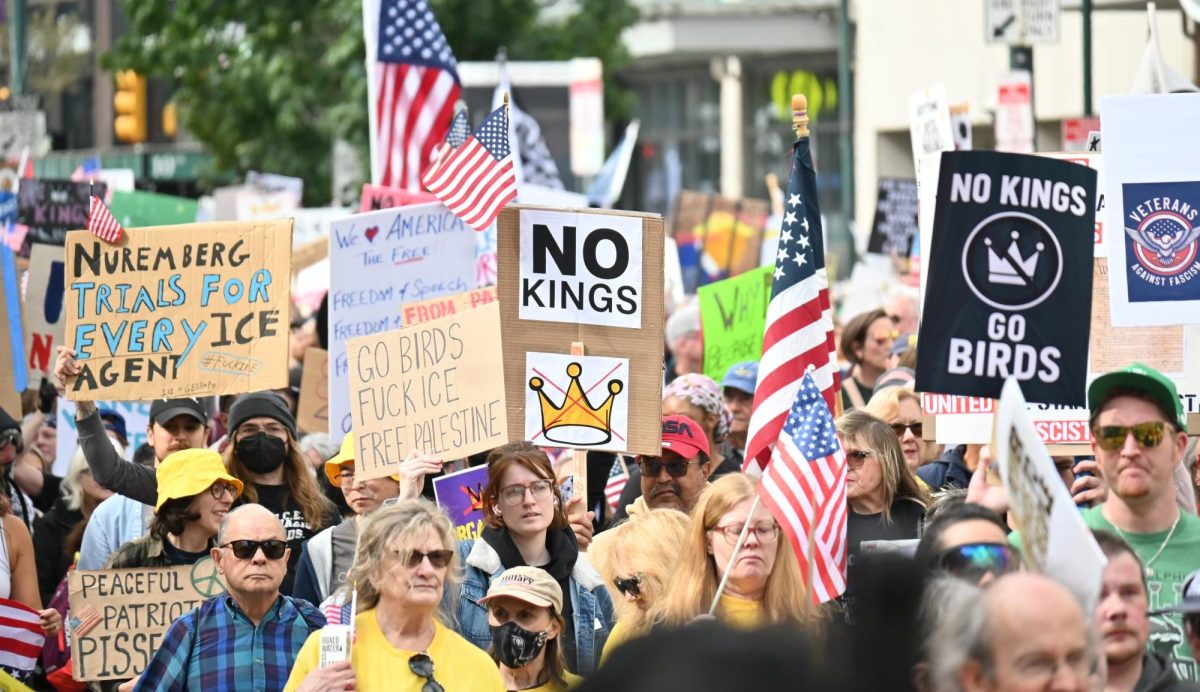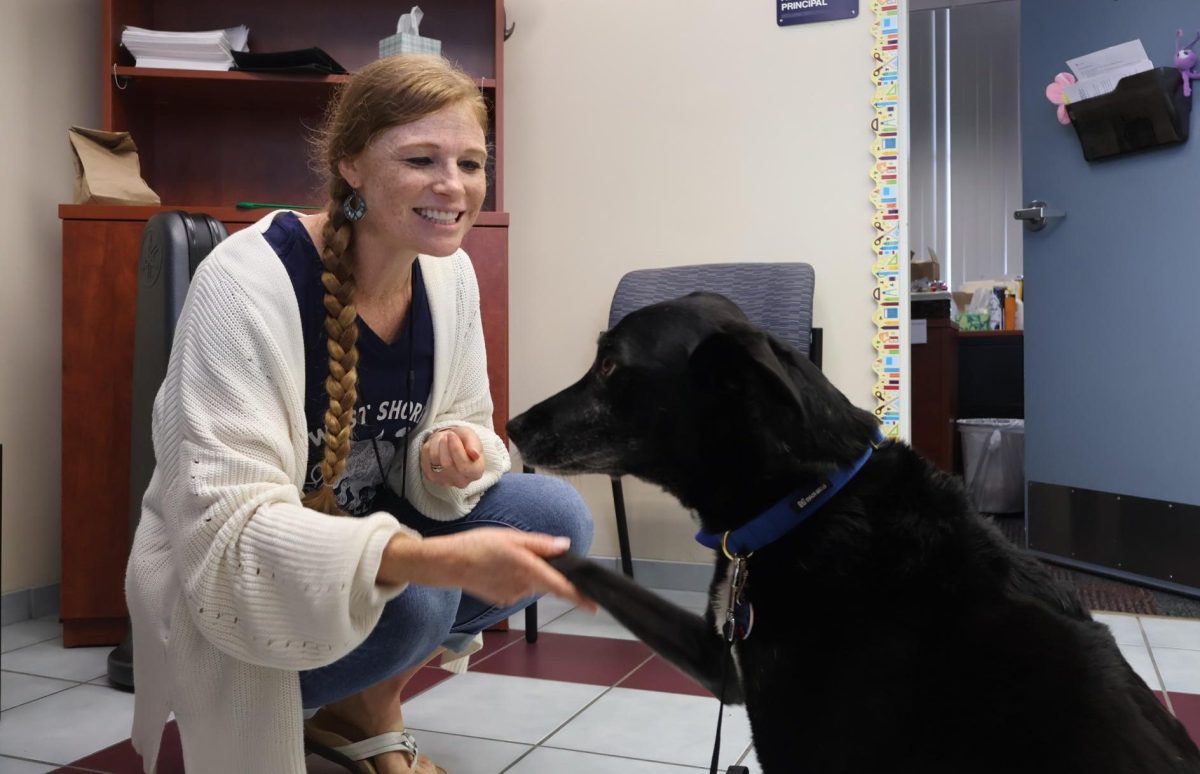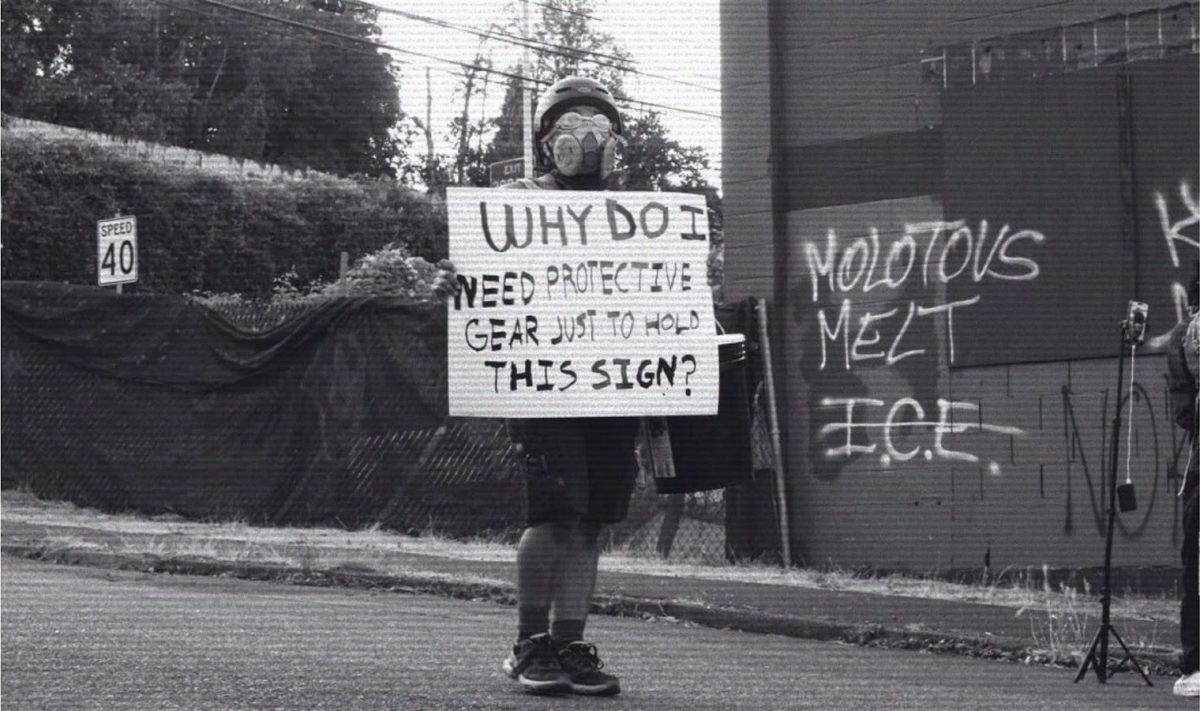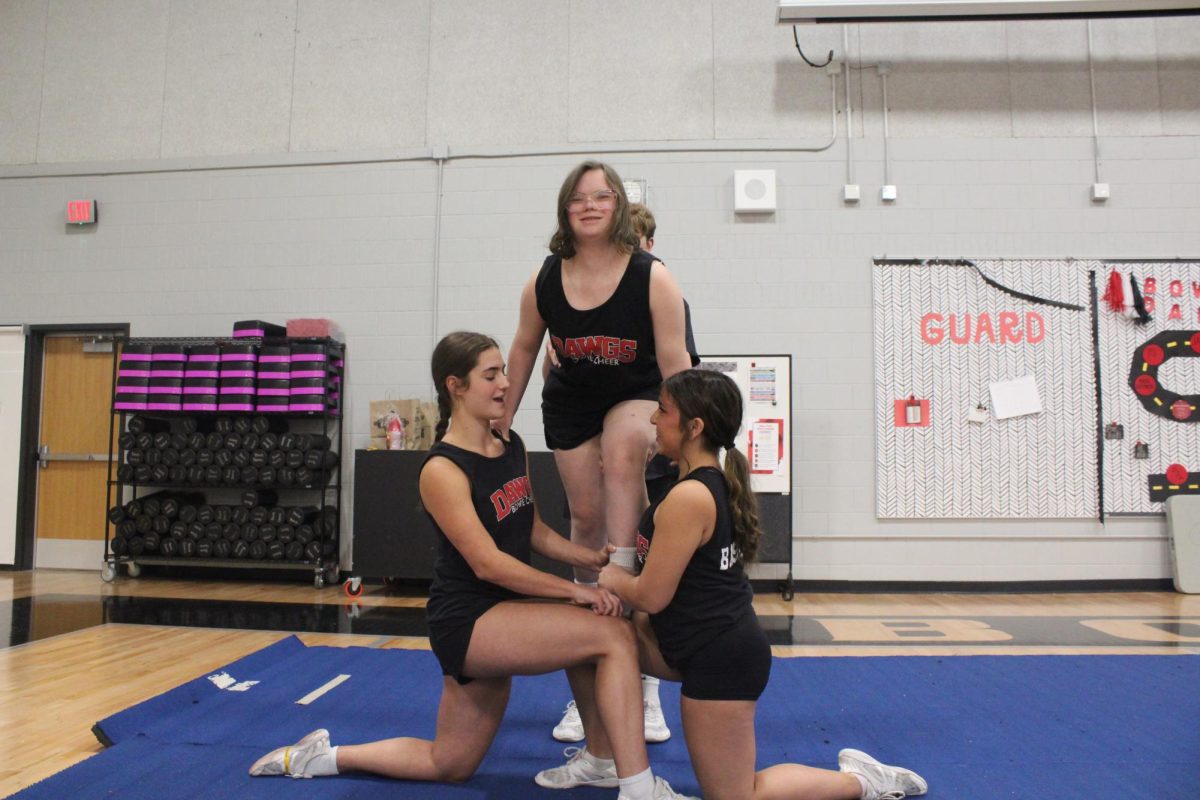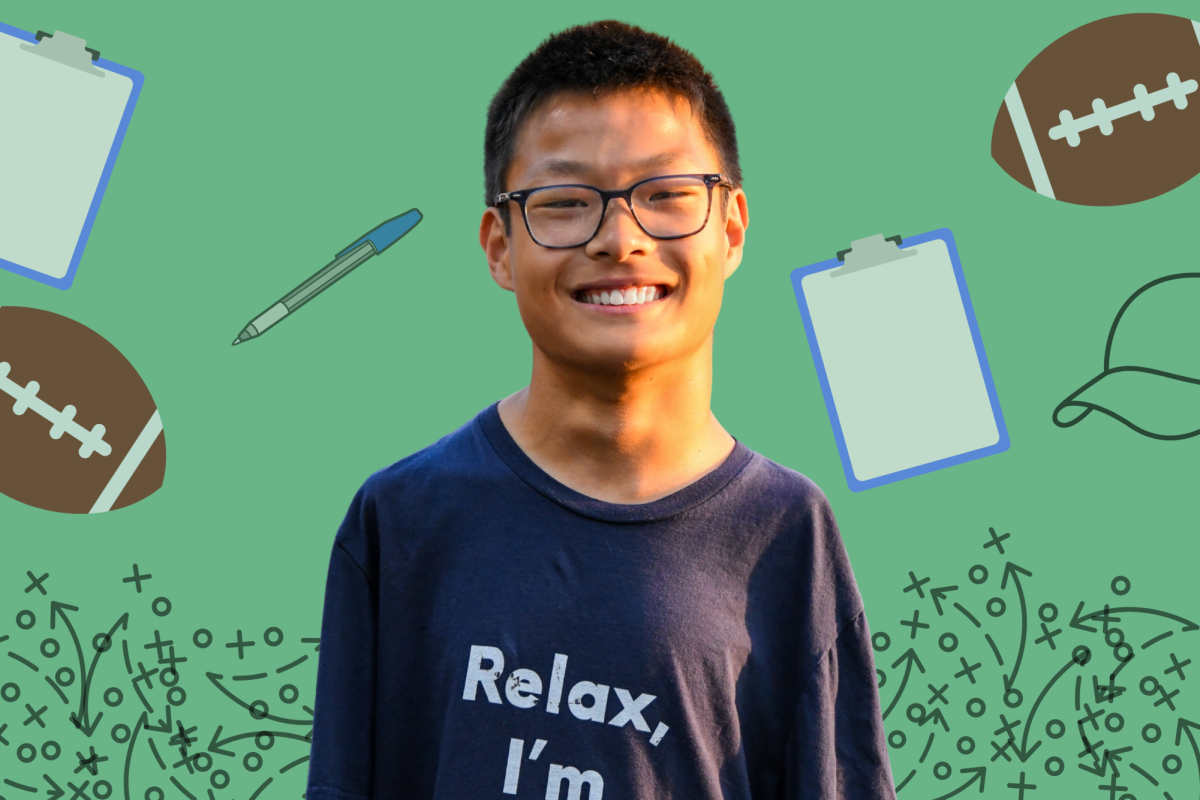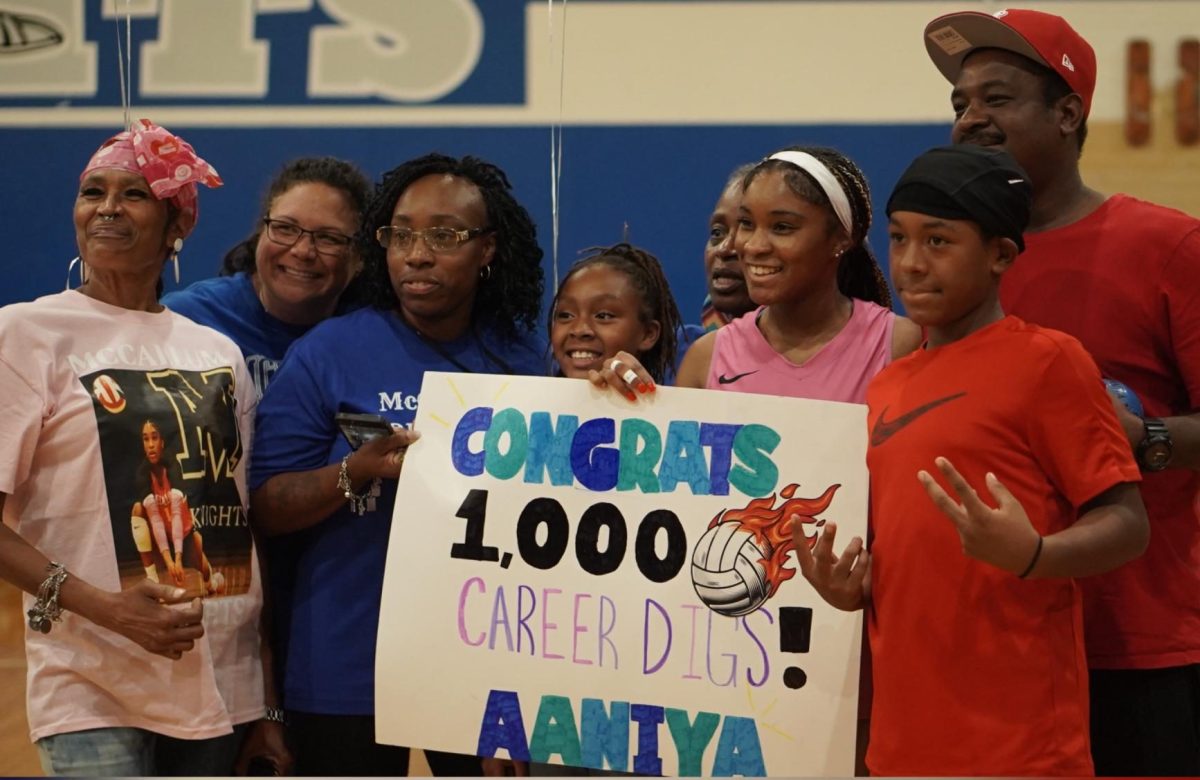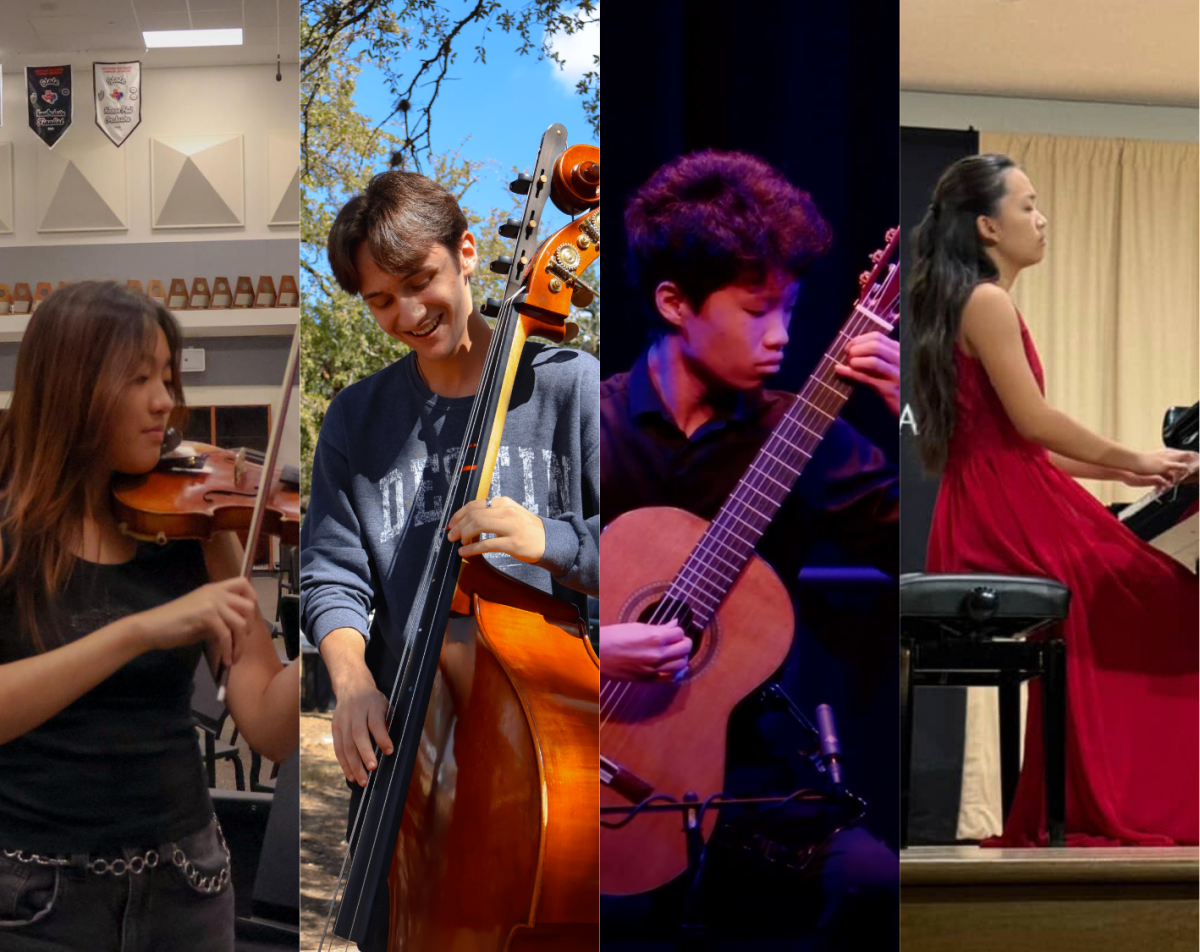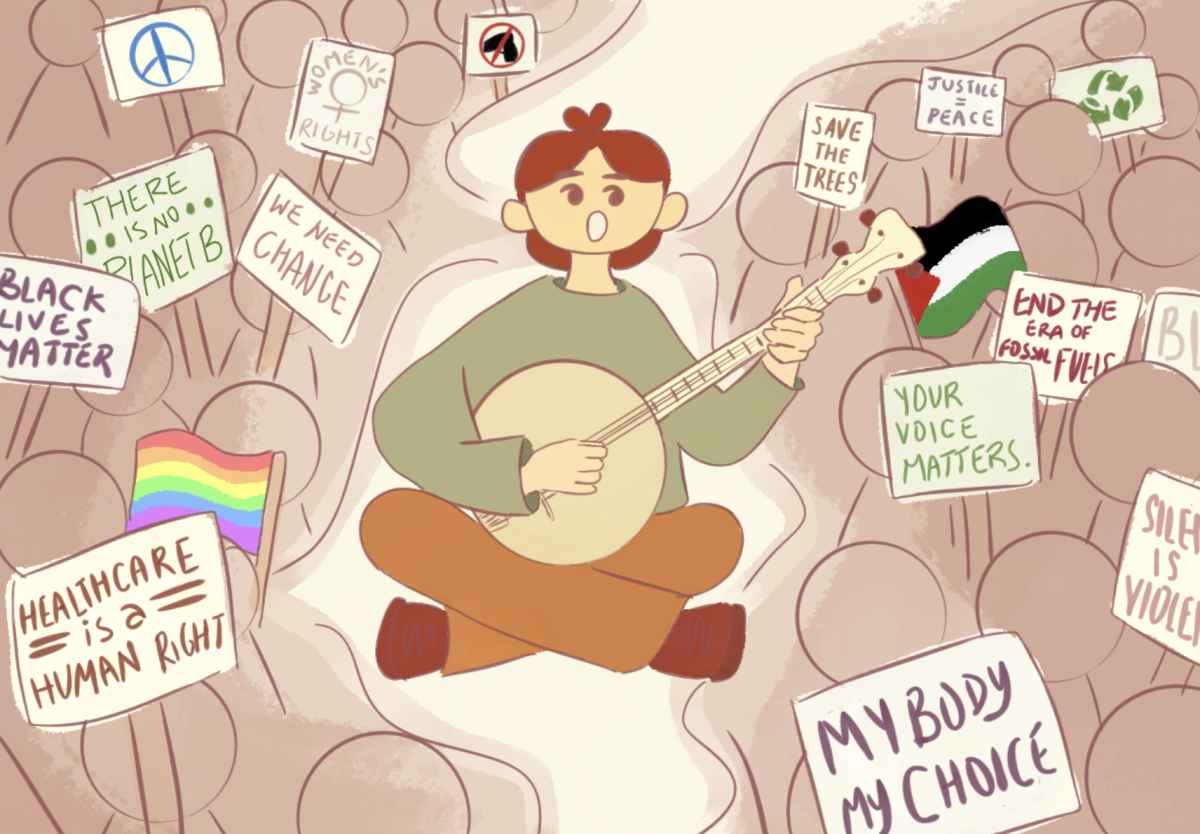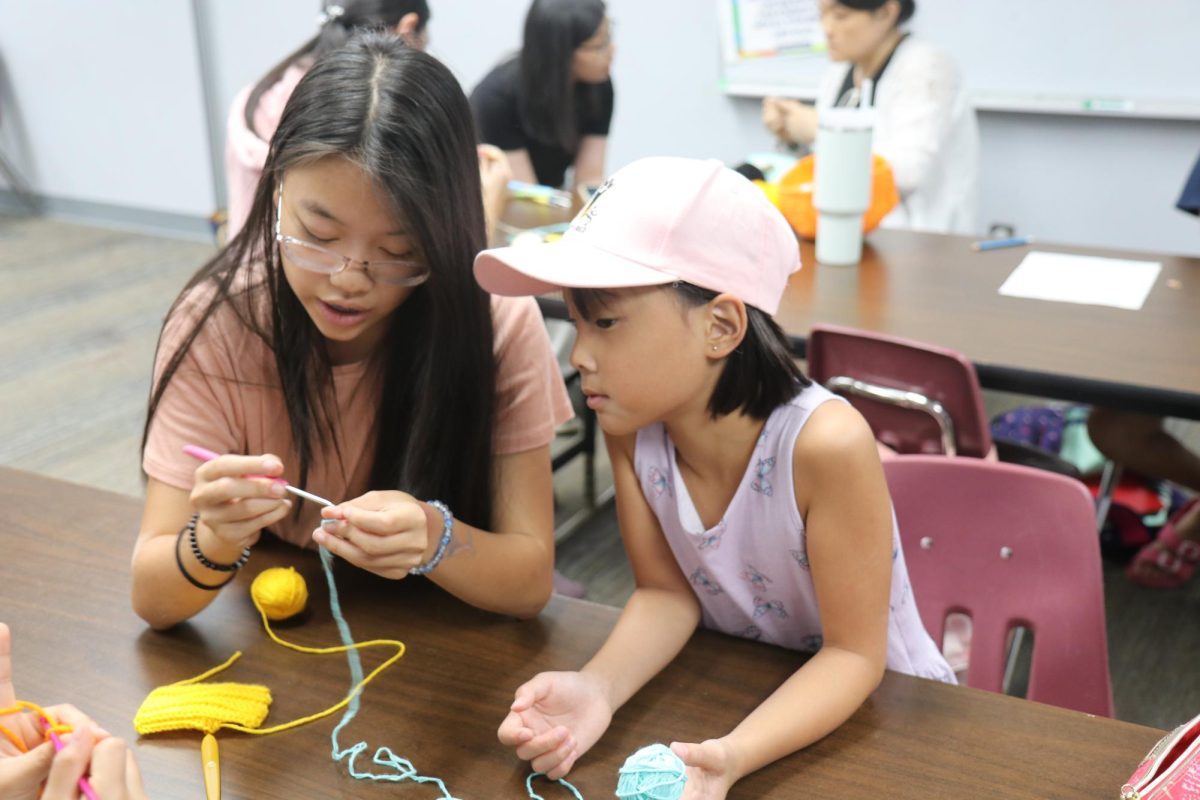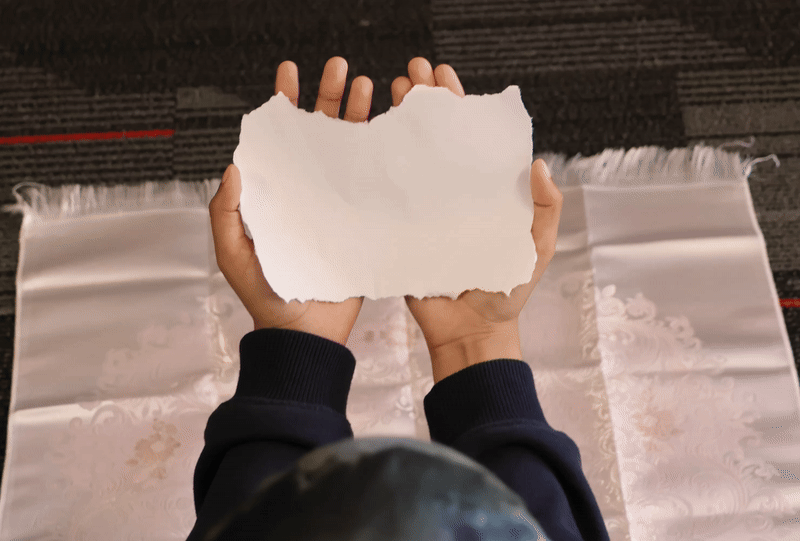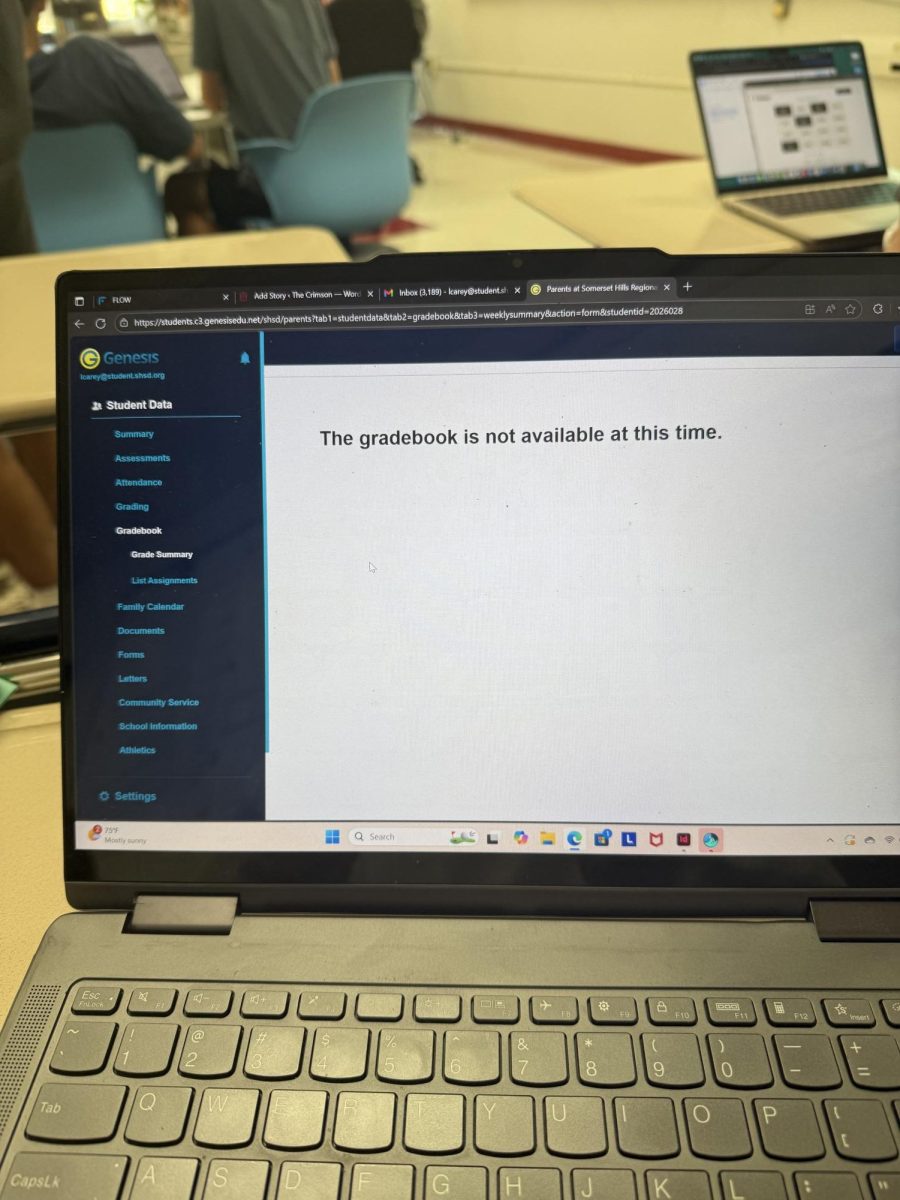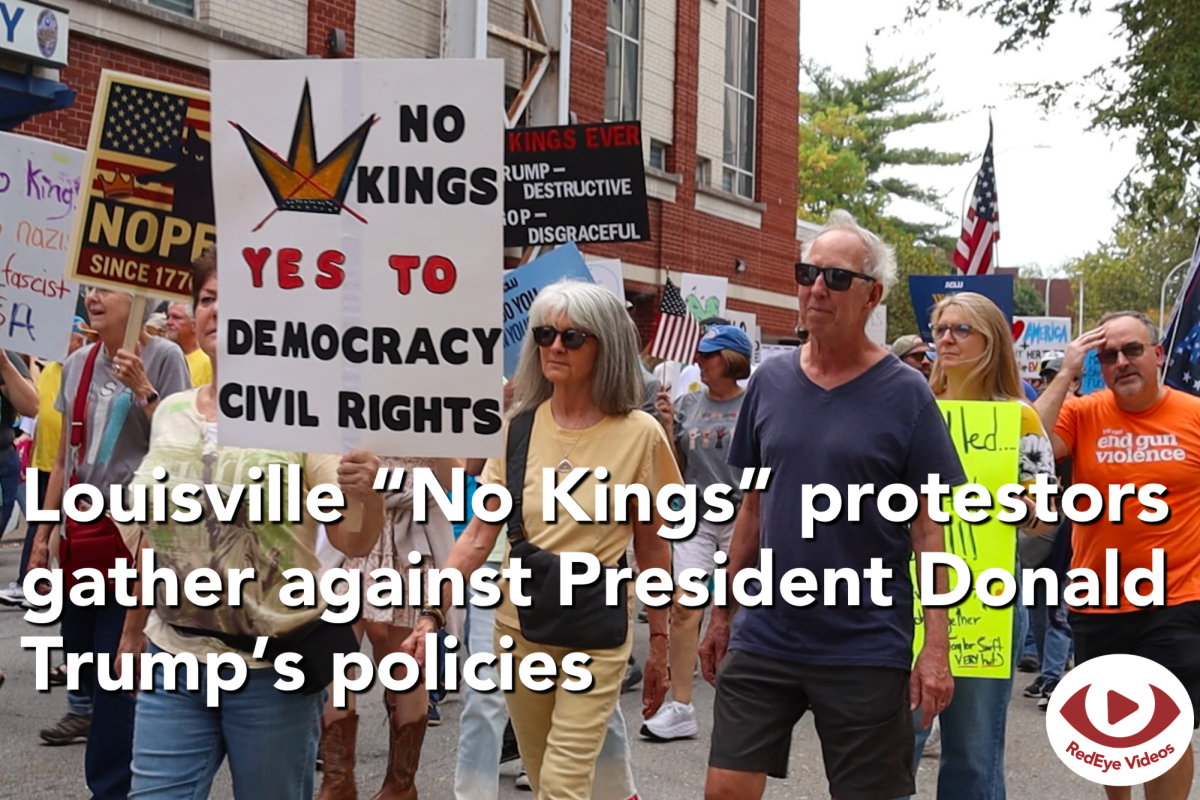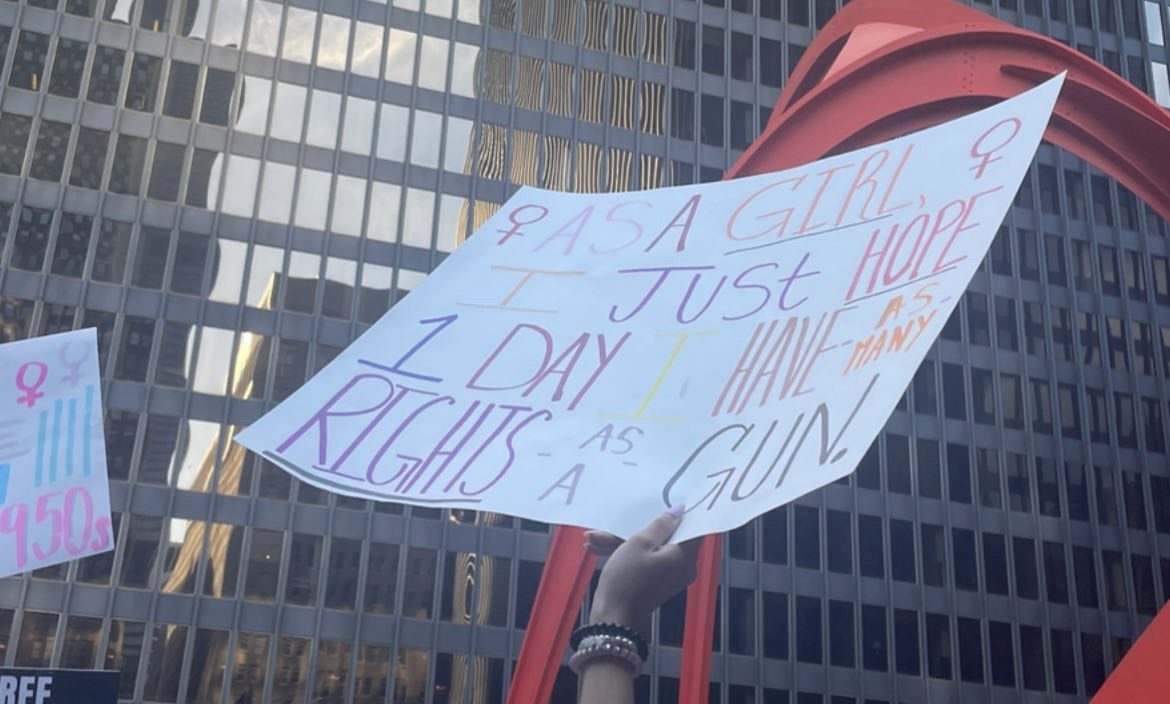The morning after the election, the moments of silence shared between women and girls communicated everything I wanted to say. The all-girl tables I sat with that day acted as a safe haven despite the uneasiness lingering in each classroom; long glances on the way to lunch and hugs before class telegraphed the much-needed message that many of my female classmates were just as uncertain and anxious as I was. I needed to feel understood at school because the results of the Presidential election told me my voice wasn’t worth listening to.
November 6 taught me a hard lesson that I had started to grasp in the aftermath of the 2016 election, at the age of 8. Eight years ago, the nation voted for the only Presidential candidate ever who lacked both political and military service, over a woman. This year, I again realized that too many Americans would rather vote for a felon accused of sexual assault than a woman.
The month that’s passed since the election has given me time to partially process my emotions. Though I am just as angry as I was a month ago, I’ve had to remind myself that some of the conclusions I jumped to on November 6 aren’t accurate. I don’t think it’s plausible that Donald Trump will be the last elected President, nor do I believe it’s within his power to sign off on a nationwide abortion ban. One thing I’m sure of, however, is that the next four years will mark a significant change in American women’s autonomy.
When I recently had to think about the greater implications of Trump’s remarks—remarks which I tried to avoid taking seriously before the election—I realized just how scared I am of having a President whose attitude toward women can be at best described as explicitly disrespectful. I worry that a man who refers to some of the most accomplished women in the country as “mentally impaired” and “as crazy as a dog” will deny real female experiences by using the same commentary. I worry that someone who praised French First Lady Brigitte Macron for being in “such good shape” and criticized Democratic Rep. Maxine Waters for her “extraordinarily low IQ” will have enough power as President to objectify and belittle women without any repercussions. I worry, above all, that boys my age will learn that a woman is simply a body, incapable of intelligence.
For someone who so clearly and comfortably reduces women to their bodies, Trump’s actions have done anything but protect them. During his first term in office, President Trump revoked the 2014 Fair Pay and Safe Workplaces laws, which included paycheck transparency and banned forced arbitration clauses for sexual harassment or assault. In response to the #MeToo movement, which was intended to empower survivors of sexual violence, he encouraged accused young men to “deny, deny, deny and push back on these women.”
Donald Trump’s obvious denial of women’s bodily autonomy is all the more evident in his stance on abortion. I’m hurt not only by the absence of scientific understanding that fuels said perspective, but also by the women who voted against other females’ safety and health because they feel entitled to push their personal beliefs onto others.
“If you don’t agree with abortion, you never have to get an abortion, and no one’s telling you to,” sophomore Arden Brown said. “But someone might actually need it, someone might be risking their lives, someone might have an unwanted pregnancy, and they need it. And why are you in a position to stop them?”
In no other medical scenario are patients asked to sacrifice their own autonomy for the benefit of another, especially when said benefit may only pertain to a few brief months of existence for the child. While many pro-life supporters argue that removing a fetus from the mother’s body is harmful to the fetus, Cambridge University Press assures that fetuses are incapable of feeling pain until sometime around 20 weeks of pregnancy. In fact, in the October, March, and April following the 2022 overturn of Roe v. Wade, infant mortality for fetuses incompatible with life rose by an average of 7%. I hope I’m wrong when I say that I live in a country that would let a woman carry an inviable pregnancy just to prove a political point.
As a student at Latin, I know these concerns might not affect me as directly as they might women in other social or economic circumstances. I consider myself privileged to live in a blue state, where an abortion ban would be unlikely, and where I know many of my peers can respect my right to control what happens to my own body. Instead, my anxieties have started to drift to the not-so-distant future—for example, I wonder whether I should cross out Louisiana and Texas schools on my college list, and I worry about what university life will look like in a state with any form of abortion ban. I’m left wondering: Why should my options for college be dictated by which states will respect my right to make a choice about my own body?
Latin seniors applying to college have raised similar concerns.
Though senior Madelyn Starr didn’t have to rethink her college list following the Presidential election, she recognized some of the questions raised by young women attending or applying to college. “I’m a little bit nervous, just based on women’s healthcare rights, especially the federal laws that [can] get passed, but again, I’m privileged enough that I have support from my family,” she said. “But definitely people who don’t have that opportunity or don’t have that privilege, I can see that being a big fear for people.”
As I’ve grappled with some of these questions in the past few weeks, I’ve looked back on the moments leading up to the election. On voting day, I was stunned that some of my eligible classmates had neglected their democratic rights by not voting, but I was willing to forgive those peers who were not as proactive as I would have been, had I been old enough to vote. The day after the election, those unfilled ballots meant so much more to me. The “I didn’t vote because I didn’t really like either candidate” became an “I didn’t vote because I felt privileged enough to not worry how the election will affect me.”
I hope, in the next election, these voters’ concerns will extend to their sisters, girlfriends, mothers, and classmates. I hope that others aren’t willing to sacrifice women’s safety and quality of life in pursuit of a so-called “better” economy. I hope that when a mother working paycheck-to-paycheck to provide for her children wonders how her situation might be improved, she won’t think of the man who cut an average of $60,000 in taxes for the top 1% and an average of $500 for the bottom 60%.
I hope that voters will be more willing to educate themselves about viewpoints different from their own. I myself am often guilty of getting sucked into social media algorithms, which recommend videos that support my personal beliefs, yet I still believe we can all do a better job of challenging our preconceived opinions and thinking beyond what only concerns ourselves.
I hope, during the next four years, that we can respect each other’s political beliefs without sacrificing our respect for each other’s rights as people.
Senior Isabella Carney, a co-head of Latin’s Intersectional Feminist Alliance, noted the post-election conversations she has had with peers who share Trump’s viewpoint on abortion. She expressed her response to these dialogues by referencing a James Baldwin quote: “We can disagree and still love each other unless your disagreement is rooted in my oppression and denial of my humanity.”
“I heard a lot of people after the election say, ‘Well, it doesn’t matter who you voted for; we should still love each other and respect each other,’” Isabella said. “But if you are voting directly to take away the rights of me and maybe some of my close friends and really any marginalized group—which, let’s make it clear, people were doing in this election—I think it’s really difficult to keep that level of respect there.”
This story was originally published on The Forum on December 3, 2024.


